Badlands Media will always put out our content for free, but you can support us by becoming a paid subscriber to this newsletter. Help our collective of citizen journalists take back the narrative from the MSM. We are the news now.
Countless politicians in America today have experienced meteoric ascensions to the upper echelons of government for no real, discernible reason. It seems as though the requirements for becoming a deep-state pawn are minimal beyond the prospective candidate's willingness to forsake their constituents to appease an international ruling class.
In this article, we are going to take a good, hard look at our brilliant, widely beloved, and exceptionally competent Vice President Kamala Harris, how she rose to political prominence, and the legacy she left behind from her time as District Attorney in San Francisco, Attorney General of California, and as a Californian Senator.
Humble Beginnings?
Kamala Devi Harris was born to Jamaican-born economist Donald Harris and Dr. Shyamala Gopalan, a Tamil Brahmin from India. Her father is described as a “Marxist economist” who taught at Stanford University and who formerly advised the Jamaican government. The Grandfather on her mother’s side, one P.V. Gopalan, was a career civil servant as well.
As much as Harris is used as a prime example of the now-overplayed ‘female minority overcoming adversity’ trope, you’ll find that there was little adversity to overcome on Kamala’s path to power.
Harris attended Howard University, a traditionally black college, and served as president of the Black Law Students Association at Hastings College of Law in San Francisco, the city that would be the staging ground for her ascent.
Kamala’s entree into the figurative halls of political power began as the direct result of a 1994 date with former Bay Area political boss Willie Brown. At the time, Brown was considered the second-most-powerful man in California. He was the Speaker of the California State Assembly and wielded immense control over statewide legislative affairs and political appointments.
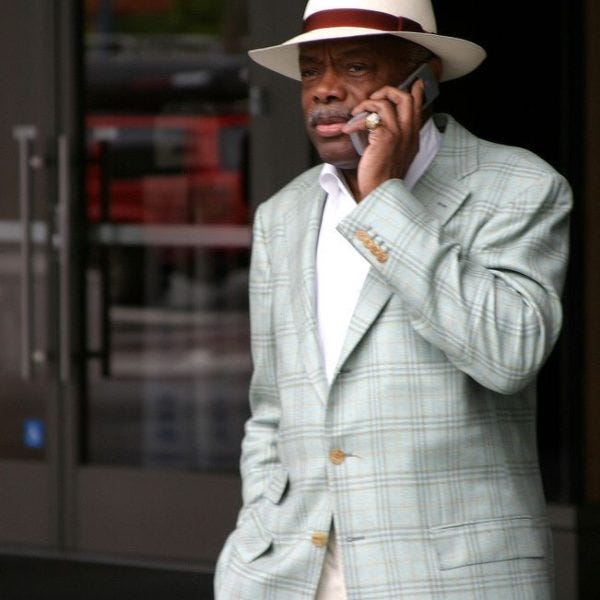
In addition to running the State Assembly, Brown maintained a legal practice on the side, creating a conduit for lobbyists and companies seeking favorable treatment in the Sacramento area to pay their dues. Despite how he is portrayed in the media, Brown’s hands are far from clean; he’s come under investigation several times throughout his career by the State Bar of California, the Fair Political Practices Commission, and the Federal Bureau of Investigation. In 1986, he was found to have “received at least $124,000 in income and gifts … from special interests that had business before the legislature.” (#)
Willie Brown, a married man, was 60 years old when he began dating 29-year-old Kamala Harris. Kamala’s mother defends her daughter’s decision, saying:
“Why shouldn’t she have gone out with Willie Brown? He was a player. And what could Willie Brown expect from her in the future? He has not much life left.” (#)
Brown boosted Kamala’s career and put money in her pocket. He rewarded her with appointments to state commissions that paid well and didn’t require confirmation by the legislature. Kamala would sit on the State Unemployment Insurance Appeals Board and eventually the California Medical Assistance Commission, which both paid around six figures a year as of 2002. (#)(#)
The most important thing Brown would give Harris was access to his vast network of political supporters, donors, and sponsors. By 1995, Brown would be running for Mayor of San Francisco, and Harris was regularly by his side throughout his campaign. Many speculated that Brown would divorce his wife and marry Harris, but that day never came, and the two would break up soon after he won his election. Most accounts claim that Brown broke up with Harris.
After the split, Kamala would date another prominent individual: daytime talk show host Montel Williams.
The fling with Big Willie may have been over, but Kamala’s political career was only just getting started. Despite the breakup, Brown and Harris remained closely affiliated. As it would turn out, having the Mayor of San Francisco in her support system would prove tremendously beneficial.
Roughly three years after Brown’s election, a San Francisco District Attorney named Terence Hallinan hired Kamala Harris to head up his office’s Career Criminal Unit.
Hallinan’s nickname around town was “K.O.” due to his boxing skills and because he had a reputation for being a ‘tough progressive’ who was unafraid to take on some of San Francisco’s most powerful forces., whether it was a corrupt police force or even the city’s new Mayor.
Some of Hallinan’s relevant claims to fame were supporting the Communist Party USA, representing Church of Satan founder Anton Lavey, shooting up heroin with Janis Joplin, being on the Patty Hearst defense team, successfully getting the murder convictions of serial killer Juan Corona overturned on appeal, and unsuccessfully defending William Leonard Pickard for running an LSD laboratory in Mountain View, California and later using the DA office's official letterhead to personally recommend Pickard be bailed after being caught in the largest LSD bust in history.
Hallinan swore that Harris's connection to Willie Brown had no bearing on her hiring, and whether that was true or not, he would soon regret his decision.
The District Attorney Era
Not long after joining Hallinan’s outfit, the number two spot in the office opened up, and Kamala set her sights on the job. In the end, Hallinan handed the position to somebody else, leading to Harris’s bitter departure from the DA’s office and an unspoken vendetta against her former employer. (#)
Mayor Brown would soon shift from being somewhat of a supporter of Hallinan to attacking him publicly for “not doing his job”. A Brown insider told the San Francisco Chronicle that,
“This whole thing was about Kamala Harris … cross one of Willie’s friends and there will be hell to pay.””(#)
Soon, the legendary Willie Brown political machine would be gearing up to run Harris against Hallinan for District Attorney. By early 2003, her hat had officially been thrown in the ring.
At first, Harris would regularly place a distant third in the polls behind her more well-known competition, often registering in the single digits.(#)
However, once the Willie Brown machine kicked into overdrive, things began to turn around.
Soon, the Harris team would be stocked with proven kingmakers.
A former Brown aide, Rebbeca Prozan, was brought on to be Harris’s campaign manager for a time and to give her operation a needed boost. Mark Buell, a major Democrat mega-donor and fundraiser, was brought on to be her finance chair and political consultant. Philip Mueller would work for Harris on behalf of Brown as well.
In addition to the dream team Brown had assembled for her, Harris’s campaign saw a flow of cash unlike any District Attorney race had seen before. Much of the wealth came from San Francisco’s high society. The Mayor would make the maximum contribution of $500, and he would send Mueller out to the San Francisco elite, suggesting that they all cough up the maximum contribution as well. (#)
They tried to cast Harris’s campaign as a grass-roots operation, but in reality, it was a very exclusive affair. The campaign leaned into the outward presentation of Kamala as a ‘strong woman of color,’ but behind the facade, there was a cadre of all-white fundraisers in Pacific Heights.
Suddenly, the upstart challenger was outraising the incumbent dramatically and, in the end, would more than double what Halliman was able to raise. Hallinan would actually attack Harris from this angle, claiming that she violated the voluntary spending cap she had pledged to honor.
In January of that year, Harris signed a form saying that she would comply with the city’s spending cap of $211,000; she signed that pledge, but blew right past the limit anyway. By November, she had raised $621,000, almost three times the cap she promised to honor. (#)(#)
Her punishment? A $34,000 fine, which is easily paid from a pool of over half a million dollars.
Dishonoring the spending cap agreement wasn’t the only ethical issue regarding Harris’s campaign. Critics would point out that some of her donations were coming from individuals who had matters sitting on her desk back at the city attorney’s office. As it turned out, more than 10% of her donors were slumlords operating single-room occupancy hotels that were deemed “problematic” due to high amounts of criminal activity, including but not limited to prostitution, rape, assault, drug activity, and robbery. (#)
The ethical dilemmas with Harris’s campaign would stretch beyond finance.
Various reports would emerge after the election regarding employees of certain businesses, as well as city workers, being told by their bosses that they had to attend campaign events for Harris. Mohammed Nuru, a Willie Brown confidant, was the deputy director of operations in the city’s Department of Public Works. One of the various programs Nuru ran was the San Francisco League of Urban Gardeners, or SLUG, a group of city workers who would provide gardening and cleanup work around the city. The group served another, more clandestine purpose: a resource to be deployed by the Willie Brown machine.
According to internal reports, SLUG employees would be dispatched on the public’s dime to fill in the sparse crowds at rallies for both Kamala Harris and Gavin Newsome to maintain the veneer of mid- to lower-class public support. They were even told to vote for Newsome and Harris.(#) Despite the reports, Kamala’s campaign manager denied the accusations, and nothing ever came of it.
Mohammad Nuru would eventually be sentenced to seven years in federal prison for receiving bribery money and kickbacks during his tenure at the DPW. (#)
In November, Kamala would come in second behind Hallinan in the 3-person race, which resulted in a runoff, since neither held a majority. Harris would win the runoff and be sworn in as a San Francisco district attorney in early 2004.
As DA, Harris enjoyed enormous discretion in deciding what cases to prosecute and which not to. This is a position that the Deep State covets; having district attorneys in their pocket gives them the ability to look the other way for friends, squash all criminal competition, and even trump up charges against anyone who doesn’t want to play ball with their agenda.
Over the course of her time as DA, a consistent pattern emerged of favoring individuals and institutions that were her political supporters or anyone closely aligned with Willie Brown. Many of these instances were of the all-too-common big-city cronyism, but occasionally, Harris’s office would be involved in covering up some of the most heinous crimes imaginable.
Child Sex Abuse Cases
Kamala has been known to recount her background as a sex crime prosecutor. In July 2019, for example, she did rightly criticize the unusually lax penalties placed on notorious pedophile Jeffrey Epstein. She attacked prosecutor Alex Acosta for “protecting predators.”
Harris, seeing an opportunity to capitalize on a tragic, yet sensationalized story, decided to go after the law firm that represented Epstein in those proceedings as well. Interestingly enough, Kamala was glad to take campaign donations from that very firm. (#)(#)
Unfortunately, the hypocrisy doesn’t end there.
Critics have long noted Kamala’s handling of the widespread Catholic priest-child sex abuse scandal in San Francisco as the primary indicator that Harris is a bad-faith actor at best, and an asset to the political criminal underground at worst.
During her decade-and-a-half stint as a chief prosecutor, Harris somehow failed to prosecute a single case of the widely known and uncharacteristically large number of priests abusing children in her area. Not only did she fail to prosecute any of them, but her office would obscure vital records on abuses that had occurred despite the constant protests of victims groups. (#)
Terence Hallinan, Harris’s predecessor as DA, had already put in the legwork and prosecuted several Catholic priests on charges of sexual misconduct involving children, and he’d been gathering case files for the eventual prosecution of many more.
Hallinan launched an investigation and subsequently discovered that the San Francisco Archdiocese was brimming with internal records of similar complaints stretching back more than seventy years. In the spring of 2002, a little more than a year before he’d be replaced by Harris, Hallinan demanded the church turn over the documents to his office. They reluctantly complied.(#)
The documents secured by Hallinan were reportedly explosive, containing the names of roughly 40 active priests in the Bay Area who’d had complaints filed against them. Hallinan used these documents to begin pursuing legal action against them, but ran into a roadblock when the U.S. Supreme Court ruled that California’s law extending the statute of limitations for these priest abuse cases was unconstitutional. (#)
Despite the setbacks, Hallinan remained determined to at least get these documents released to the public. His aggressive pursuit was a thorn in the side of the Catholic Church, which was being financially gutted by mounting legal fees and settlements for cases in the area going back decades.
What’s more, the documents in Hallinan’s possession touched on well-connected institutions at the very heart of the California power structure—namely the Jesuit-run St. Ignatius College Prep School, from which hailed powerful Californian players like then Governor Jerry Brown, as well as the highly influential Getty family.
Around this time, high-dollar donations to Harris’s campaign began to roll in from those connected to the Catholic Church's institutional hierarchy.
According to Author Peter Schweitzer:
“Harris had no particular ties to the Catholic Church or Catholic organizations, but the money still came in large, unprecedented sums. Lawyer Joseph Russoniello represented the church on a wide variety of issues, including the handling of the church abuse scandal. He served on the Catholic Church’s National Review Board (NRB) of the U.S. Conference of Catholic Bishops.
The purpose of the NRB was to review Catholic Church abuse cases. Russoniello was also a partner in the San Francisco law firm Cooley Godward. Russoniello donated the maximum amount by law to her campaign, $1,250, and his law firm added another $2,250. He also sat on Harris’s advisory council when she was San Francisco district attorney.
Another law firm, Bingham McCutcheon, which handled legal matters for the archdiocese concerning Catholic Charities, donated $2,825, the maximum allowed. Curiously, Bingham McCutcheon had only donated to two other candidates running for office in San Francisco before, for a total of $650. As with Russoniello, their support was unusual.”
Arguedas, Cassman & Headley, another firm representing a San Francisco priest facing abuse claims, would end up donating $4,550 to Harris, and the lawyer Cristina Arguedas would actually end up serving on Harris’s advisory council. (#)
Additionally, board members of the San Francisco Archdiocese and their family members dumped a combined total of $50,950 into Harris’s campaign.
Hallinan put in all the work; all Harris would have had to do was simply finish the job. Instead, not only did she end the effort to make the documents public, but she didn’t even attempt to prosecute a single priest. (#) Considering the number of cases brought against priests in other parts of the country at that time, the fact that Kamala, in an area considered a hotbed of ecclesiastical sexual abuse, failed to even attempt to prosecute a single priest is a testament to her intentional inaction.
So what ended up happening to these documents?
In 2010, a journalist with the San Francisco Weekly requested access to the records through California’s Public Records Act. Harris’s office refused the request and offered weak, conflicting excuses as to why they couldn’t provide them.
For all anyone knows, those documents no longer exist.
The abuse records weren’t the only thing she hid as DA.
As per the New York Post:
Some of Harris’ prosecutorial shenanigans are well-known by now. In 2010, a California Superior Court judge blistered Harris’ DA office for violating defendants’ rights by covering up detrimental information about a drug-lab technician. The judge concluded that prosecutors working under Harris had failed to fulfill their constitutional duty to tell defense attorneys information about prosecution witnesses that might challenge their credibility. The failure of Harris’ prosecutors led to the dismissal of more than 600 drug cases. (#)
Harris would come under public scrutiny on many occasions over the course of her stint as district attorney. Shortly after taking the job, she sparked a decade-long feud with police unions for declining to pursue the death penalty for a gang member who murdered San Francisco police officer Isaac Espinoza.
One of Harris’ most damning scandals came in 2010, after a technician was caught skimming cocaine from a crime lab and mishandling evidence. A judge ruled her office failed to disclose that information to defense attorneys, causing more than 600 drug-related cases to get tossed out. (#)
Harris would also take to prosecuting the parents of habitually-truant students, calling the issue of students skipping school “tantamount to a crime”—even amid criticism that the policy disproportionately targeted low-income people of color.
Harris is a prime example of the fact that being a progressive politician doesn’t require one to actually be progressive, only to appear to be.
This barely scratches the surface in regard to Kamala Harris’s questionable political and legal activities. We’ve yet to touch on her time as Attorney General of California, or her time as a Senator, let alone the train wreck that has been the Biden-Harris administration.
TO BE CONTINUED …
SOURCES:
https://www.latimes.com/archives/la-xpm-1987-03-13-mn-5616-story.html
https://web.archive.org/web/20170807075225/https://www.sfweekly.com/news/kamalas-karma/
https://www.sfgate.com/politics/article/Lawmakers-put-cronies-in-plum-jobs-Big-pay-few-2864693.php
https://www.latimes.com/politics/la-pol-ca-tm-kamala-20190121-story.html
https://www.sfgate.com/politics/article/D-A-files-campaign-complaint-Hallinan-says-2584819.php
https://www.sfgate.com/politics/article/No-holds-barred-debate-in-D-A-race-2547137.php
https://www.sfgate.com/politics/article/City-workers-We-were-told-to-vote-work-for-2812182.php
https://www.sfgate.com/bayarea/article/Accused-abusers-freed-in-Bay-Area-16-including-2577085.php
https://www.sfgate.com/news/article/Victims-groups-irate-over-prosecutors-deal-with-2799997.php
https://nypost.com/2020/09/03/kamala-harris-rampant-prosecutorial-abuses/
https://nypost.com/2020/08/12/inside-kamala-harris-polarizing-record-as-a-prosecutor/
Badlands Media articles and features represent the opinions of the contributing authors and do not necessarily represent the views of Badlands Media itself.
If you enjoyed this contribution to Badlands Media, please consider checking out more of my work for free at Underground Newswire.




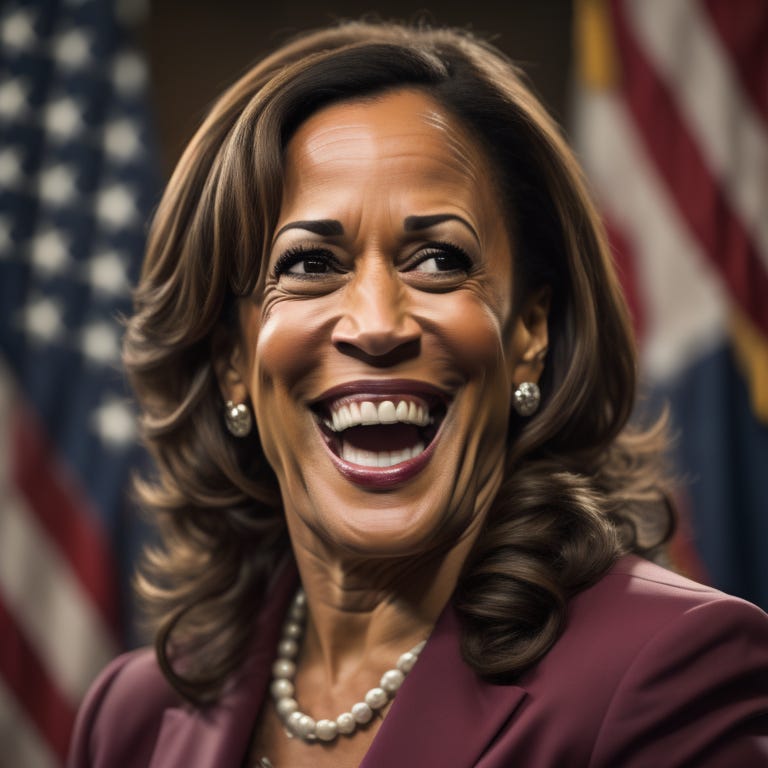
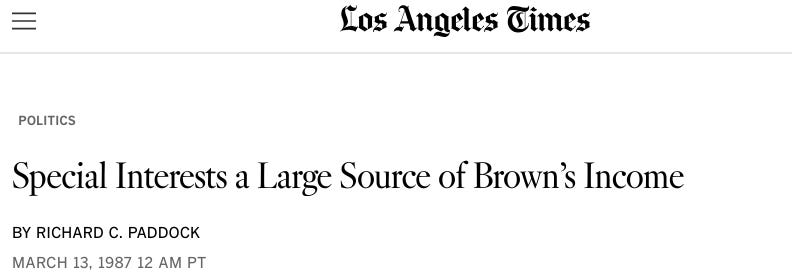
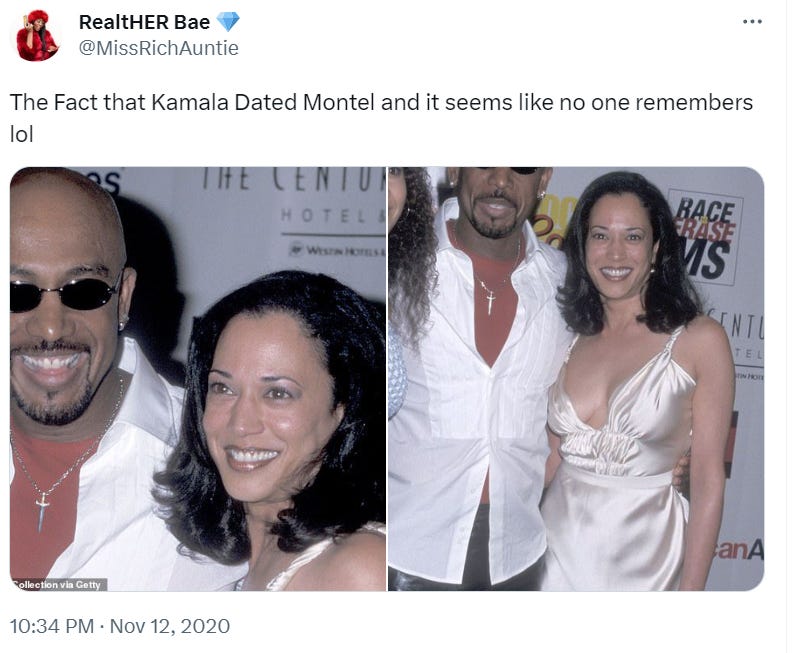
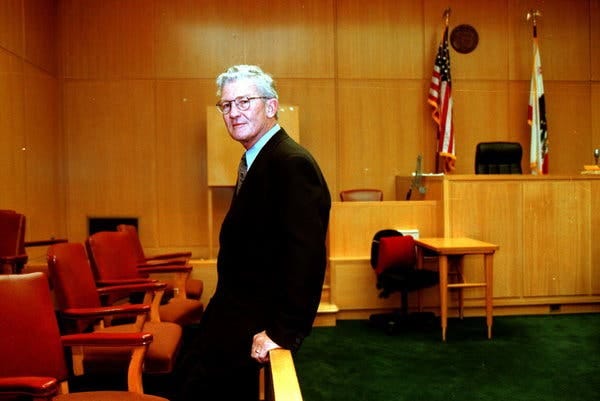

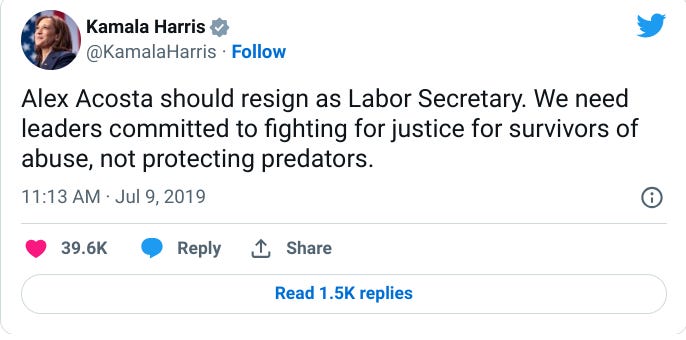
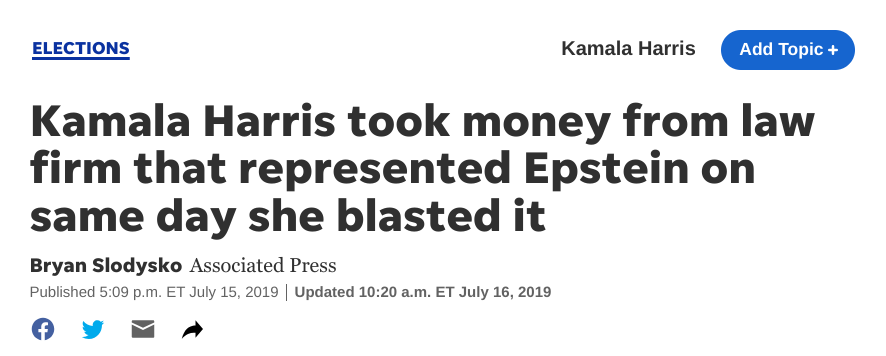
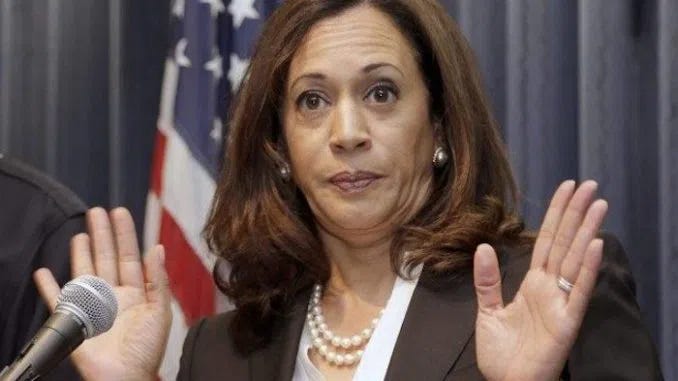
Thanks for filling in all the details Ryan. I didn’t follow California politics all that close. You painted the picture perfectly.
Blessings brother
Badlands keeps bringing the long ball! Thanks for this Ryan !